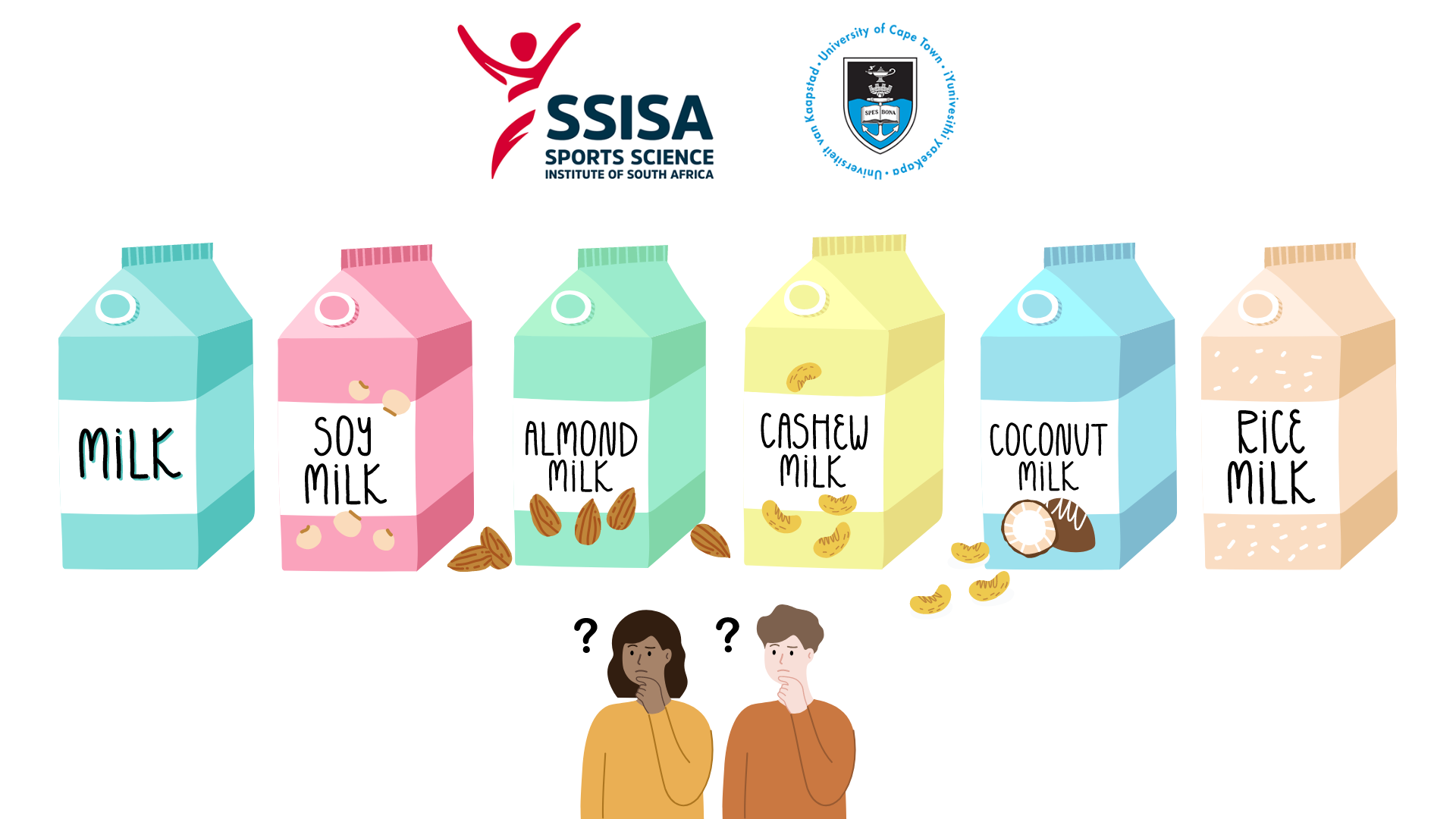Milk is an essential daily food product. It provides us with high quality protein and calcium, as well as several other nutrients such as phosphorus, magnesium, zinc and vitamin D and K (1,2). Low-fat dairy products (including milk) have been linked to reducing risk of disease such as type 2 diabetes, cancer, high cholesterol, and cardiovascular disease (1,2). Additionally, milk has been shown to help maintain lean muscle mass during calorie restriction and weight loss strategies and can help facilitate an improved body composition in adults (1).
So why the hunt for milk alternatives? Firstly, a lactose-free milk alternative is highly attractive to people suffering with lactose intolerance. Lactose is a carbohydrate found in milk (and other dairy products) and lactose intolerant people have an inability to break this down. It can cause these individuals to experience gas, diarrhea, or bloating. Naturally, avoiding these symptoms is beneficial. Secondly, some dietary preferences, such as veganism, tend to avoid dairy products. Lastly, there has been some attention given to the ethics around dairy farming practices as well as their environmental impact which has also led the drive toward other milk sources.
When comparing different types of animal- and plant-based milk, traditional cow’s milk has 3.5g of protein per 100ml, with 120mg of calcium and ranges between 3.4g, 2.0g and 0.2g of fat in full fat, low fat, and fat free options. All the above having roughly 5g of carbohydrates per 100ml. When looking at alternatives, soy milk comes in at the second highest in protein per 100ml with 3.3g (1–3). It is also relatively low in fat with only 1.8g per 100ml. If we compare cow’s milk and soy milk to nut milks, it clear that the nut milks are lacking in protein, with only 0.6g per 100ml of almond milk. Although very low in protein, almond milk is a good source of vitamins, calcium, and potassium, and is low in saturated fats. Oat milk is slightly higher in protein than almond milk, at 1.5g per 100ml, but it also packs 8g of carbohydrates and 2.5g of fat.
With milk being a staple in most diets, changing milk source can have a significant impact on your diet. Understanding the composition of each milk alternative can help to guide decisions to get the desired outcome. For example, if you want to have almond milk as your preferred milk, you might need to ensure adequate daily protein intake through other sources. Things like fat-free cottage cheese (10g of protein, 2g of carbs, and 0.5g of fat per 100g) or low-fat Greek yoghurt (6g of protein, 6g of carbs, and 2.5g of fat per 100g) could be used to increase daily protein intake.
Below is a table comparing some of the popular milk and milk alternative options (1–3) to help guide milk selection.
| |
Calories (per 100ml) |
Protein |
Fats |
Carbohydrates |
Calcium |
| Full Cream Milk |
62kcal |
3.2g |
3.4g |
5g |
120mg |
| Low Fat Milk |
50kcal |
3.3g |
2.0g |
4.8g |
120mg |
| Fat Free Milk |
36kcal |
3.4g |
0.2g |
5.0g |
120mg |
| Soy Milk |
53kcal |
3.3g |
1.8g |
6.0g |
25mg |
| Almond Milk |
17kcal |
0.6g |
1.5g |
0.5g |
120mg |
| Oat Milk |
60kcal |
1.5g |
2.5g |
8.0g |
150mg |
| Cashew Milk |
20kcal |
0.4g |
1.4g |
1.8g |
120mg |
| Coconut Milk |
188kcal |
1.9g |
20.1g |
3.1g |
16mg |
| Rice Milk |
126kcal |
1.8g |
2.0g |
24.5g |
120mg |
Regardless of the reasons behind alternative milk selections, it is important to understand the nutritional composition of each alternative.
Yours in Sports Science,
Sports Science Institute of South Africa
References:
- Thorning TK, Raben A, Tholstrup T, Soedamah-Muthu SS, Givens I, Astrup A. Milk and dairy products: Good or bad for human health? An assessment of the totality of scientific evidence. Vol. 60, Food and Nutrition Research. Taylor and Francis Ltd.; 2016.
- Gil Á, Ortega RM. Introduction and Executive Summary of the Supplement, Role of Milk and Dairy Products in Health and Prevention of Noncommunicable Chronic Diseases: A Series of Systematic Reviews. Advances in Nutrition. 2019 May 1;10:S67–73.
- Fontecha J, Calvo MV, Juarez M, Gil A, Martínez-Vizcaino V. Milk and Dairy Product Consumption and Cardiovascular Diseases: An Overview of Systematic Reviews and Meta-Analyses. Vol. 10, Advances in Nutrition. Oxford University Press; 2019. p. S164–89.


